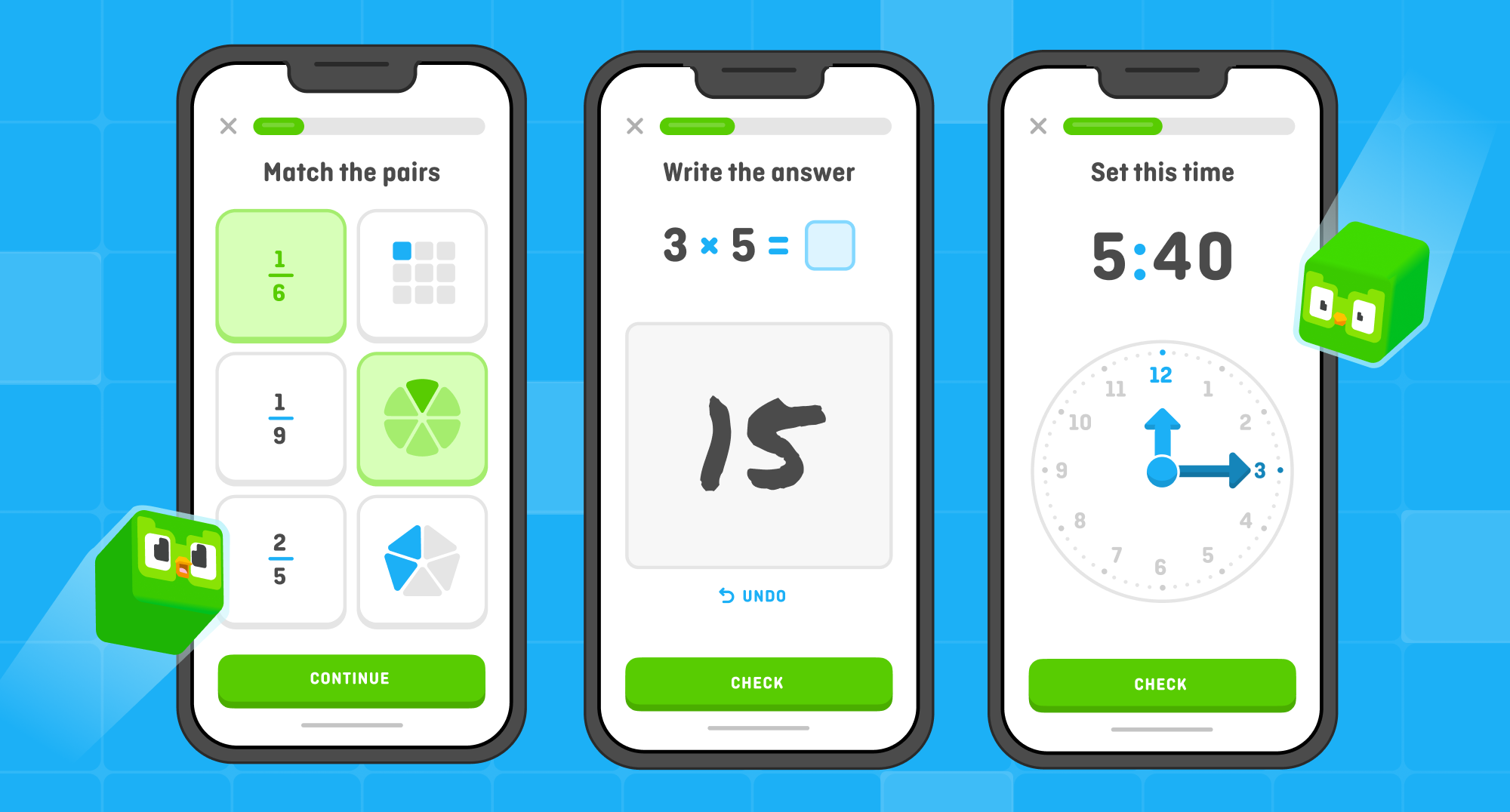Duolingo is launching its math app to the public,
and months after a beta version joined the app store.
The math app, named Duolingo Math, is the first subject expansion that Duolingo has made beyond its original roots of language learning and literacy. And yes, it has punny notifications and nudges from Duo, infamous owl-turned cube (along with other characters evolved into mathematical figures), per lead engineer Sammi Siegel.
It is available on iOS today, while Siegel said Android is on the radar once the app hits product-market fit.
“Our mission has always been to provide high quality accessible education and I don’t think that necessarily stops at language learning,” Siegel said in an interview with TechCrunch. “We’ve seen the stats on math, education and losses over the pandemic.” The engineer, who has been at Duolingo for four years, teamed up with four other colleagues to build the app with the goal of getting rid of adult and child “math anxiety” alike.
Upon downloading the app, users are able to choose between an elementary version, which gets into basic math concepts such as multiplication and division, or an adult version, dubbed brain training, which focuses on similar concepts. Brain training is optimized for training mental math skills. Think less about division for the sake of division, and more about how to quickly compute the tip on dinner as the waiter hovers over your shoulder.
While the app originally was built for children, Siegel said that the team introduced the more difficult, adult-focused version of the app somewhat recently. “We’ve noticed in our metrics, [that] brain training is slowly starting to creep up over elementary, but I think it’s still a little too early to tell exactly where those trends are going to go,” Siegel added.
In the future, Duolingo’s math app may start to show even higher level math, such as linear algebra or college-level math; while its elementary focused app is more about gaining confidence in the classroom. Siegel said that the app is designed to include bite-sized lessons, interactive exercises, streaks and the same kind of “delight and animation” that has helped Duolingo scale to millions and millions of users.

Image Credits: Duolingo
The app, similar to its flagship language learning app, is free to use. Siegel said it will stay free for now, unlike Duolingo which launched a subscription tier over the past few years.
As I said last year, language learning is a skill that is benefited by cultural context and nuance, while math revolves around the goal of getting to the one right answer. Siegel notes that the app does have questions, such as equivalent fractions, where there are a variety of answers, and that it progresses in difficulty as a user goes through the questions.
Both areas of education require methodical thinking and the ability to apply functions to get to answers. In Duolingo’s whimsical product eyes, it seems like the team thinks both subjects could benefit from motivation and attention – even if it takes an Owl to get there.
Synergies aside, the expansion puts Duolingo square into competition with math-focused edtech companies such as Khan Academy, Brilliant.org, Photomath, Numerade and the recently acquired Symbolab. It’s thus complicated how this new bet lines up with the fact that CEO and co-founder Luis Von Ahn mentioned that the majority of the company’s investment will remain on language learning products for the next 3 to 5 years.
As mentioned in the Duolingo EC-1, von Ahn has always said that he and his co-founder, Severin Hacker, were thinking about making Duolingo a math app before they eventually decided on language learning.
“I love math, but if you learn math, math itself can’t make you any money,” von Ahn said in a previous interview. “You learn math to learn physics to become an engineer, whereas knowledge of English directly improves your income potential in most countries of the world.”
Duolingo’s owl will now shout fractions at you by Natasha Mascarenhas originally published on TechCrunch















 English (US) ·
English (US) ·